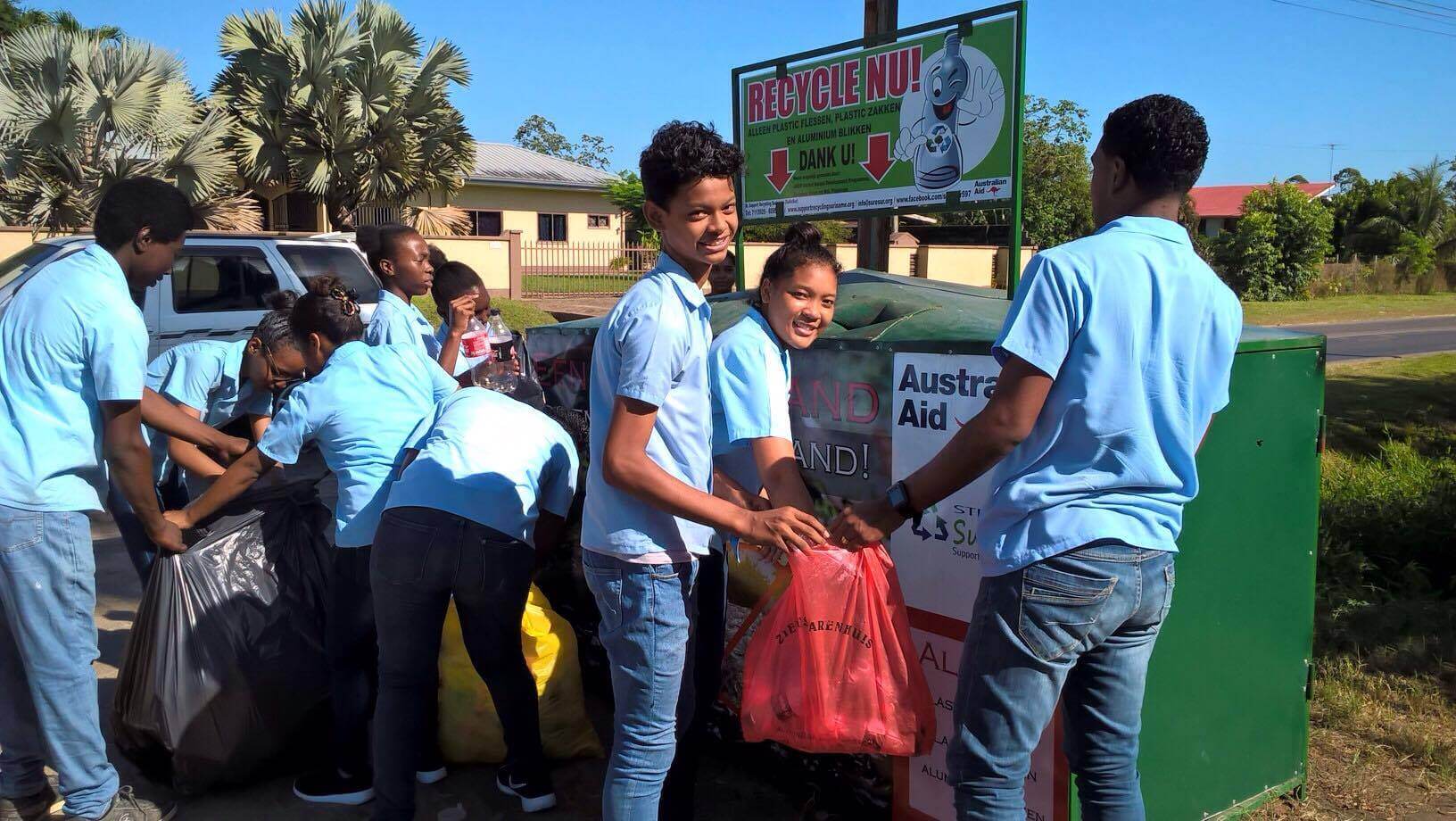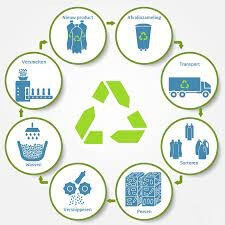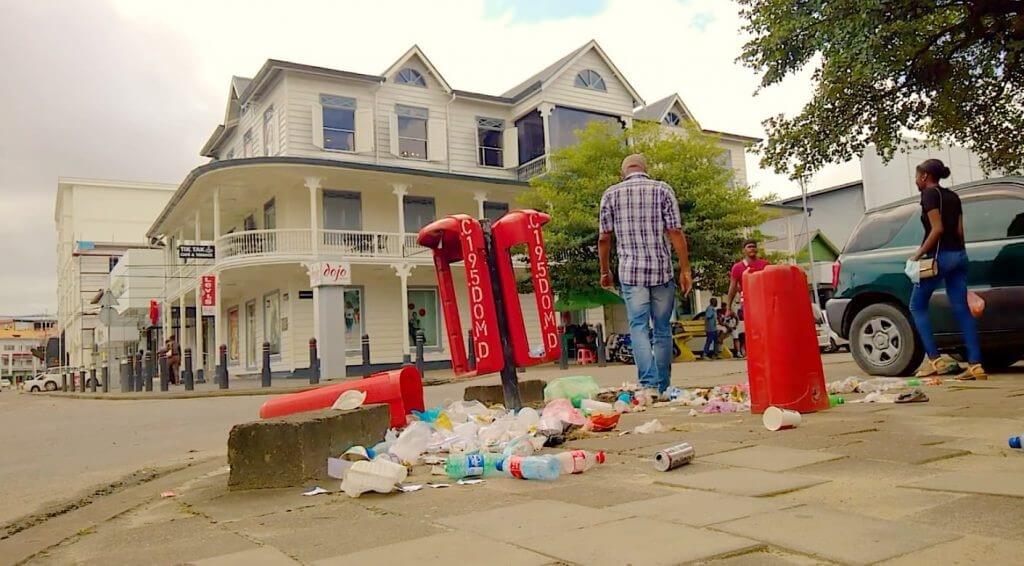The Power of Social Recycling in Suriname

Revolutionizing Plastic Waste Management
eyesonsuriname
Amsterdam,May 10th 2023– Plastic pollution has become one of the most pressing environmental challenges of our time.
The sheer volume of plastic waste generated daily is overwhelming ecosystems, clogging waterways, and endangering marine life. As the detrimental consequences of plastic waste become more evident, the need for effective solutions has never been greater. In this article, we delve into the concept of social recycling, a transformative approach that not only tackles the plastic waste crisis but also empowers communities and promotes sustainable practices.
Understanding Social Recycling:
Social recycling is an innovative concept that integrates environmental awareness, community engagement, and sustainable waste management practices. Unlike conventional recycling, which primarily focuses on technical processes, social recycling emphasizes the social aspects of recycling and aims to bring about behavioral changes and community involvement.

The process of social recycling begins by raising awareness about the importance of recycling and the impact of plastic waste on the environment. This can be achieved through educational campaigns, community events, and partnerships with local organizations. By fostering a sense of responsibility and environmental consciousness, social recycling motivates individuals to actively participate in recycling efforts.
Engaging Communities:
One of the key elements of social recycling is the active involvement of communities. By creating inclusive networks and collaborative platforms, social recycling encourages individuals, businesses, schools, and local authorities to work together towards a common goal. Community recycling centers or drop-off points are established to make recycling more accessible and convenient for everyone.

These centers serve as hubs for collection, sorting, and processing of plastic waste. They often provide employment opportunities for local residents, thus contributing to the economic development of the community. Additionally, social recycling initiatives frequently organize clean-up drives and recycling campaigns, further strengthening the bond between community members and fostering a sense of shared responsibility.
Benefits of Social Recycling:
1. Environmental Impact: Social recycling significantly reduces the amount of plastic waste that ends up in landfills, incinerators, or the natural environment. By diverting plastic waste from traditional disposal methods, it helps mitigate pollution, conserve natural resources, and minimize greenhouse gas emissions associated with plastic production.
2. Community Empowerment: Social recycling fosters a sense of ownership and empowerment within communities. By actively involving individuals in the recycling process, it instills a sense of responsibility and enables them to contribute directly to positive environmental change. This empowerment can lead to broader community engagement and sustainable practices in other aspects of life.
3. Education and Awareness: Social recycling initiatives create opportunities for educational outreach, raising awareness about the impact of plastic waste and encouraging sustainable behaviors. By educating individuals from an early age, social recycling helps shape a generation that is conscious of its environmental footprint and advocates for responsible waste management.
4. Economic Opportunities: Social recycling initiatives often generate employment opportunities within communities, particularly in the collection and sorting of plastic waste. This helps create local jobs, stimulate economic growth, and strengthen community resilience. Furthermore, the recycled plastic materials can be used for the production of various goods, supporting local industries and promoting a circular economy.
Challenges and the Way Forward:
While social recycling offers immense potential, it is not without its challenges. Adequate infrastructure, funding, and logistical support are crucial to sustain and scale these initiatives. Additionally, continuous education and outreach are essential to maintain active participation from communities.

Governments, businesses, and individuals must collaborate to create an enabling environment for social recycling to thrive. This includes developing policies that promote recycling, providing financial support to community recycling programs, and encouraging the use of recycled plastic in product manufacturing.
Social recycling presents a transformative approach to plastic waste management that goes beyond the traditional notions of recycling. By engaging communities, fostering awareness, and empowering individuals, it offers a holistic solution to the plastic waste crisis while driving social, economic, and environmental benefits. By embracing social recycling, we can work
eyesonsuriname









